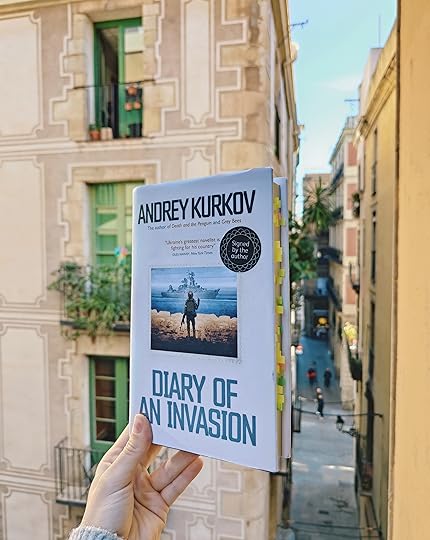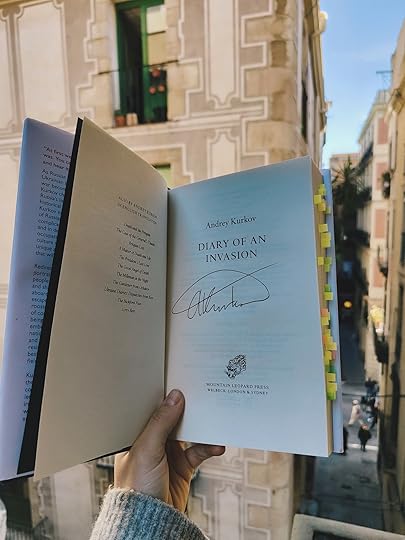What do you think?
Rate this book


304 pages, Hardcover
First published October 10, 2022

A dramatic experience makes for a dramatic perception of the future. But, as if by some divine joke, in the Ukrainian national character, unlike in the Russian one, there is no fatalism. Ukrainians almost never get depressed. They are programmed for victory, for happiness, for survival in difficult circumstances, as well as for the love of life.
p. 14
On February 24, 2022, all citizens of Ukraine found that their lifetime had been cut brutally in two, into the period “before the war” and that “during the war”. Of course, we all hope that there will be a period “after the war as well”.
p. 214
Every war leaves a deep wound in the soul of a person. It remains a part of life even when the war itself has ended. I have the feeling that the war is now inside me. It is like knowing that you live with a tumour that cannot be removed. You cannot get away from the war. It has become a chronic, incurable disease. It can kill, or it can simply remain in the body and in the head, regularly reminding you of its presence, like a disease of the spine.
p. 166
During World War II, there was a slogan in the Soviet Union that said, “For the Motherland, for Stalin!” The soldiers who died did so for the U.S.S.R. and for Stalin. […] Now the Russians are dying, “For the Motherland, for Putin”. Ukrainians die only for their Motherland, for Ukraine. Ukrainians don’t have a tsar to die for. […] Ukraine is a country of free people.
p. 161
Taken together, this is not only a chronicle of Russian aggression in Ukraine but a chronicle of how the war imposed by Russia – and Russia’s attempt to destroy Ukraine as an independent state – have contributed to the strengthening of Ukrainian national identity.
p. 15
